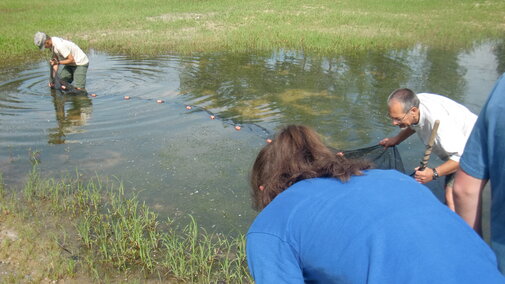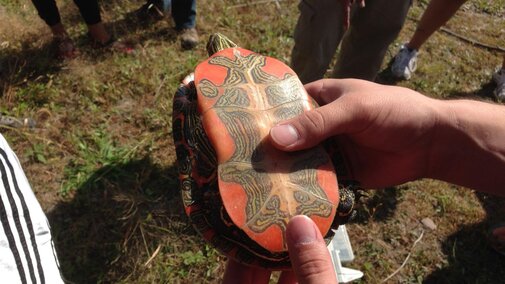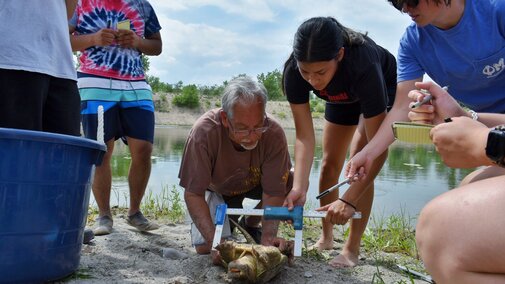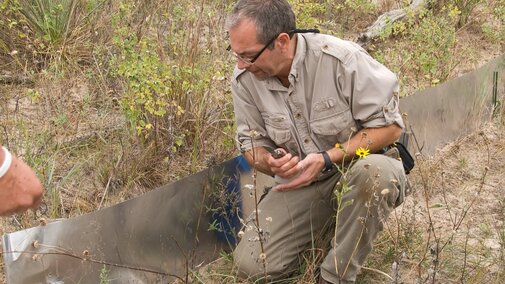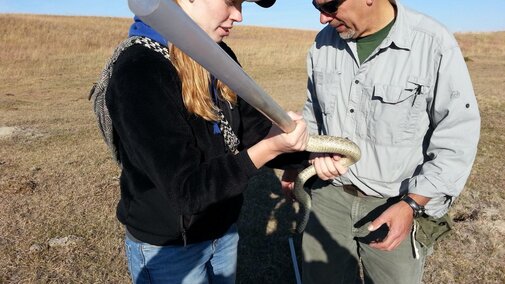Fulfills:
NRES 462/862
Prerequisite:
NRES 211 Introduction to Conservation Biology OR equivalent
About the Instructor:
Dennis Ferraro is Professor of Practice in the School of Natural Resources, University of Nebraska–Lincoln (UNL). His interest in herpetofauna began when he was a child in Connecticut. Today, he uses his passion to teach Herpetology and run UNL's Herpetology Lab. This lab keeps snakes, turtles, and other herpetofauna for research and public education. Professor Ferraro also maintains an active teaching schedule. He teaches conservation biology, wildlife damage management, and supervises several independent studies.
Professor Ferraro has many research interests, including:
- Prairie rattlesnake conservation
- Monitoring the range of Nebraska's native species
- Overseeing student research and outreach projects
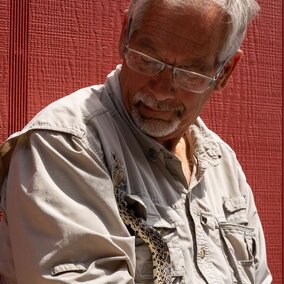
Course Description:
This course focuses on methods and issues in modern conservation biology. Course will include lectures, coupled with readings from the scientific literature and (on methodological topics) problem sets, and lots of discussion. Additionally, there will be several on location visits to areas (within 100 miles) to observe biodiversity efforts in action.
Course Objectives: after completing the course, you should be able to:
- Understand and have an informed opinion on the key ethical, economic, social, and scientific issues underlying conservation biology
- Understand and be able to use key methods in conservation biology
- Recognize approaches for protecting species
- Distinct issues associated with conservation of different taxa.
- Develop a conservation plan proposal draft
Materials:
Lecture notes, assignments, exams, and various references will be available on the course CANVAS website. Additionally, students will be required to read on-line journal articles and resources that you will be asked to download.
Course Activities:
Final grade will be a breakdown between discussion and assignment points. The proportions will be approximately equal. The discussion points are not automatic you must offer your constructive thoughtful assessments and opinions in class. At end of each week a 2–5-page essay on one of the topics discussed or visit is required (2 total). At the end of the third week, you will be expected to present and lead a discussion on an endangered species ("don’t sweat it, I’ll show you how to do it" -Ferraro). Graduate and undergraduates are graded separately although assignments will generally be the same.
Topic Outline:
- Introduction & Why Should We Conserve
- The Biological Basis of Conservation Biology Reviewed
- Biodiversity
- Ecosystem Function
- Tools of the Trade
- Methods: Population Assessment
- Methods: Assessing Species Diversity
- Methods: Population Genetics
- Methods: Captive Breeding
- Methods: Assurance colonies
- IV. Causes
- Habitat Destruction, Degradation, and Fragmentation
- Invasive Species
- Climate change
- Urbanization and Human Populations
- Agriculture
- Remedies
- Restoration
- Protection
- In-Situ efforts
- Corridors
- Protected area
- Translocation
- Unique Considerations by Taxa (Student Lead Case Studies)
- Plants
- Terrestrial Invertebrates
- Aquatic /Marine Invertebrates
- Aquatic /Marine Vertebrates
- Terrestrial Vertebrates
Class Sound Amazing?
Does this class fit your professional aspirations? Grab your seat on our Marketplace page!
